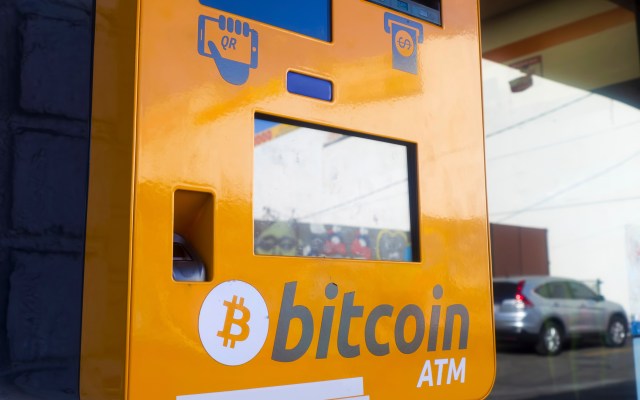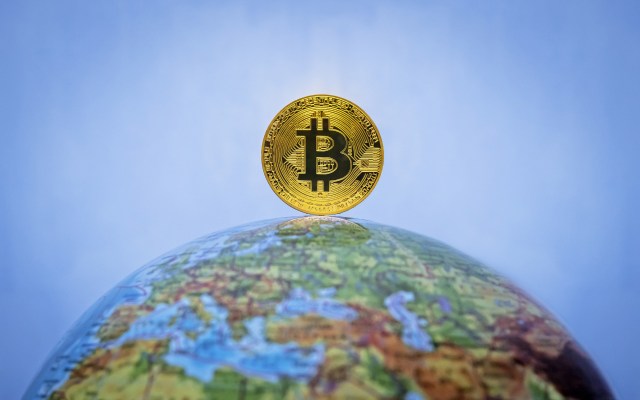
Bitcoin itself is already ‘real estate’ on the blockchain by quickly emerging as the first ‘digital property’ for an increasingly digital world.
Bitcoin is ‘The Most Interesting Property’
Forget real estate on-the-blockchain.” Bitcoin already is. In fact, it’s the “most interesting property in the world,” writes General Partner at Blockchain Capital, Spencer Bogart.
Looking closer, many similarities do exist between Bitcoin and real estate. Moreover, Bitcoin introduces some unique advantages that will surely come in handy in an increasingly digital world.
Bogarts explains that Bitcoin is a technology that “blurs the boundary” between personal property and real property because the distinction is arbitrary to begin with.

It’s Absolutely Scarce
First and foremost, Bitcoin is scarce just like physical property. But it’s unitization into a total of 21 million pieces or bitcoins plot of land fungible.
“Fortunately, there’s no need to compare the pieces: Every piece of this property is the same as every other piece — they’re fungible,” explains Bogart.
Additionally, Bitcoin’s scarcity is mathematically verifiable. In other words, Bitcoin’s scarcity is absolute. It’s even more absolute than physical territory that can be geologically formed over time, reclaimed, or colonized (in space) in the future etc.
What’s more, this scarcity will become even more palpable with time. Block reward halvings will continue reducing emission asymptotically until 2140. Meanwhile, over 75 percent of all bitcoin have already been mined. While over 4 million are now estimated to be lost.
You Don’t Need Guns or a Wall
Bitcoin introduces other unique attributes that weren’t possible before. Unlike physical real estate, it is both portable and borderless. It also doesn’t require walls or fences to secure. Safekeeping your bitcoins is much easier and cheaper.
A hardware wallet typically costs around $100 bucks on which you can store limitless amounts of value. And the best part is that no one has to know it.
“It’s discrete…nobody would even necessarily know if you were carrying it,” says Bogart.
I want to be able to own something that is considered valuable to the world, and not have anyone know about it. #mydataMyLife @matt_odell
— B (@BrennanGeis) April 18, 2019
It Can Be Moved Around the Globe in Minutes
Digital real estate means your property is now portable in the age of computers. While fungibility makes it alot more liquid than traditional real estate. It’s no coincidence that so many exchanges have sprung up enabling people to trade bitcoin with anyone around the globe in minutes.
Bogart notes:
While it typically costs 8–20% in transaction expenses and months of time to finalize real property transactions, units of this particular property can be transacted for a fraction of 1% — and can be completed in minutes.
It’s Programmable, Non-Discriminatory, Un-Seizable
This ‘digital real estate’ is also programmable empowering the owner to set who can access or use it and for how long. This brings a slew of benefits and new possibilities (e.g. multi-sig digital contracts) including being-your-own-bank capabilities.
The ‘digital territory’ is also non-discriminatory by following one simple rule: the owner of the private key controls the property.
In other words, no one can take your digital plot of land from you unless you allow them to. This is nothing short of a breakthrough for objective property rights, undermining dependence on courts and governments.
Bogart notes:
It offers strong assurances for objective property rights, impersonal rules and consistent enforcement of these clearly defined rules.
It’s Quickly Developing and Growing in Value
The aforementioned traits make Bitcoin prime real estate for economic development. In a world that is becoming increasingly digital, the emergence of Bitcoin as ‘digital real estate’ may not only be necessary, but also inevitable.
Programmability, portability, security, fungibility, and network effect, in particular, are distinguishing Bitcoin as the focal point for trustlessly transferring value in the digital age.

And just like land along with its natural resources that can be developed to increase its value, Bitcoin is already demostrating tremendous economic growth and growing in price.
Bogart concludes:
[T]his property is surrounded by economic growth in the form of rapidly expanding and improving infrastructure. Other people are building the bridges, tunnels, and railways that, hopefully, make your property more useful.
Should investors consider Bitcoin as ‘digital property’? Share your thoughts below!
Images via Shutterstock


















